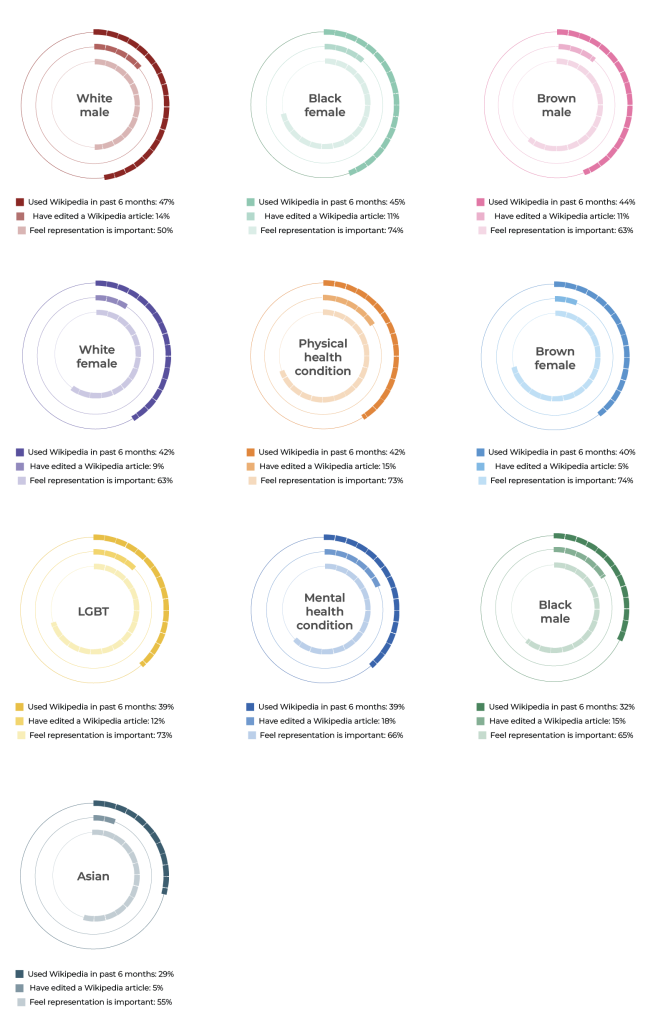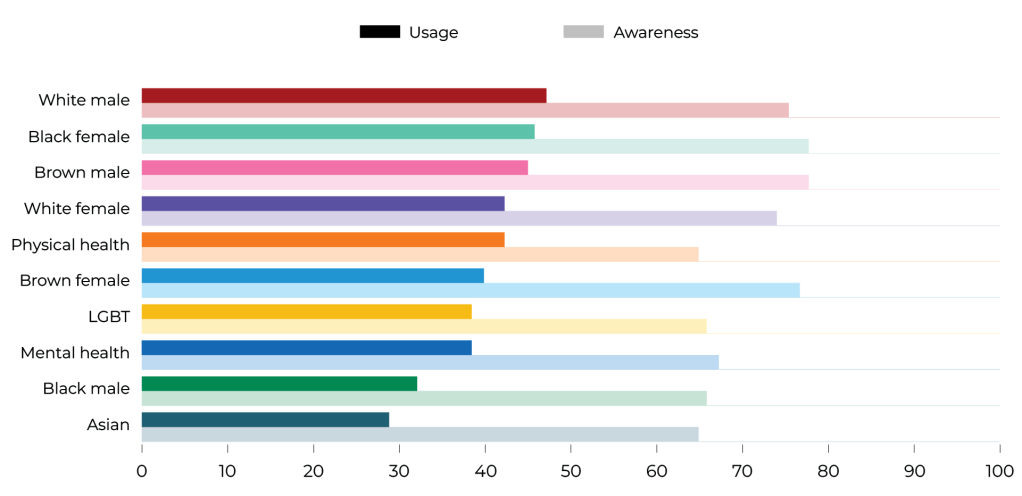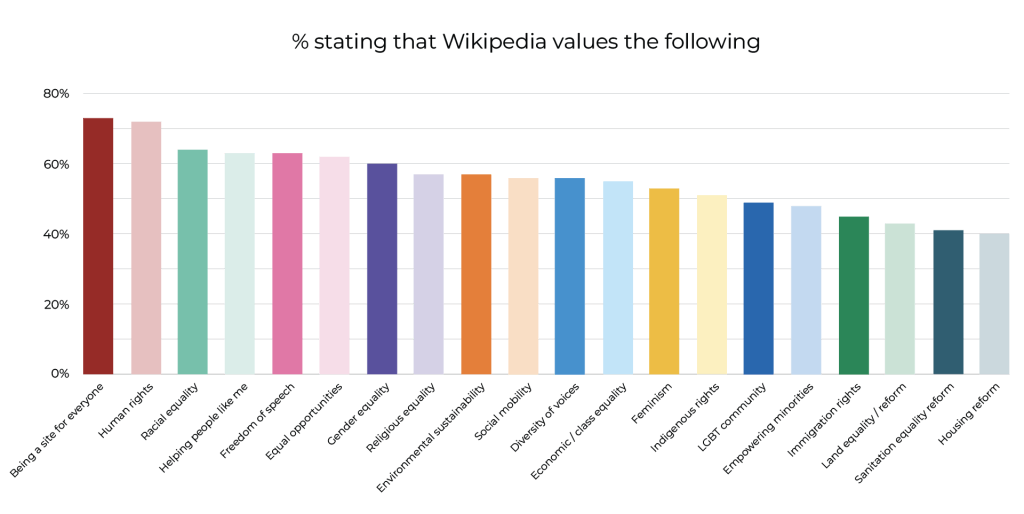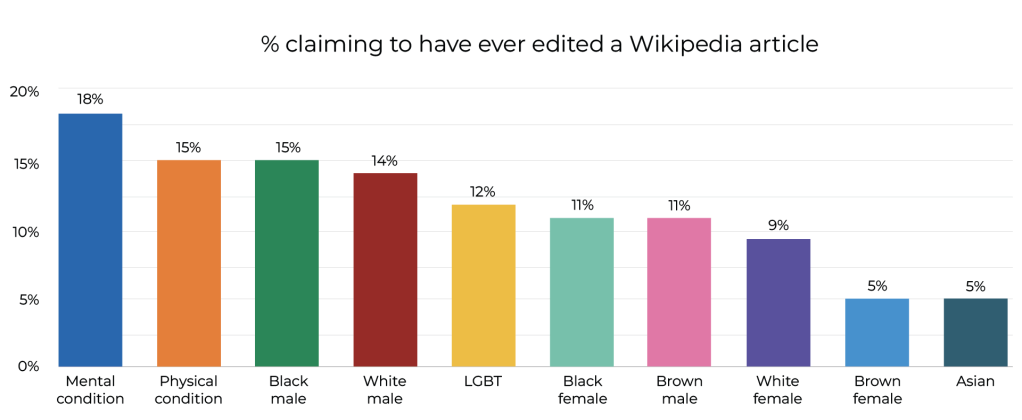Understanding Wikimedia audiences in Brazil to achieve knowledge equity
Methodology
- Online survey
- Two sample frames: 1,000 non-white Brazilians
- 500 nationally representative sample of Brazilians
- Target audience: Online population
- Survey dates: 16-24 October 2021
Context
There are unique socio-cultural factors and nuances in the Brazilian market that are reflected in the language and data, which should be taken into account when reading the report:
- The official ethnic groups as measured by the Brazilian Institute of Geography and Statistics (IBGE) in the Brazilian census are: White (branco), brown (pardo), black (preto), asian (amarelo), and indigenous (indígena)
- According to the IBGE, the brown community encompasses mixed race Brazilians such as mulatos and cafuzos, as well as assimilated Amerindians known as caboclos
In this study we have used the classifications and language that the Brazilian census uses for the different ethnic groups
Key Insights
- Black people are well represented in media, but not on Wikipedia
- We must engage the Asian community, who have low awareness & a more negative view of the platform
- We must improve engagement with the Brazilian LGBT community, who want to be better represented on Wikipedia (and in Brazilian media overall

Usage and Awareness
- Black/brown women are most aware of Wikipedia
- White men are the most likely to use Wikipedia, black men & Asian community are less likely
- Technology appears more important for men. There is opportunity to bring in Black & Brown women through content about health and wellbeing


Perception and Representation
- Black demographic groups feel Wikipedia under/misrepresents its race; black women especially
- It is most important to black and brown women, and LGBT people to be represented on Wikipedia


Editing
- Men and those with health conditions are the most likely to claim having edited a Wikipedia article
- The biggest editing driver, more so for brown people, is wanting to feel part of something bigger.

See the complete report
Help us unlock the world’s knowledge.
As a nonprofit, Wikipedia and our related free knowledge projects are powered primarily through donations.
Donate now
Contact us
Follow

Wikimedia Foundation’s Accreditation to World Intellectual Property Organization Blocked for a Fourth Time by China
Yesterday, the Wikimedia Foundation, the nonprofit that hosts and supports Wikipedia and other Wikimedia projects, was again denied accreditation as a permanent observer to the World Intellectual Property Organization (WIPO).

Wikimedia Foundation statement on volunteer processes on reliable sources
There has been recent media coverage regarding a decision by Wikipedia’s volunteer community on the reliability of the Anti-Defamation League as an encyclopedic source in specific subject areas. In an effort to promote better understanding of how Wikipedia works, the Wikimedia Foundation has issued a statement.